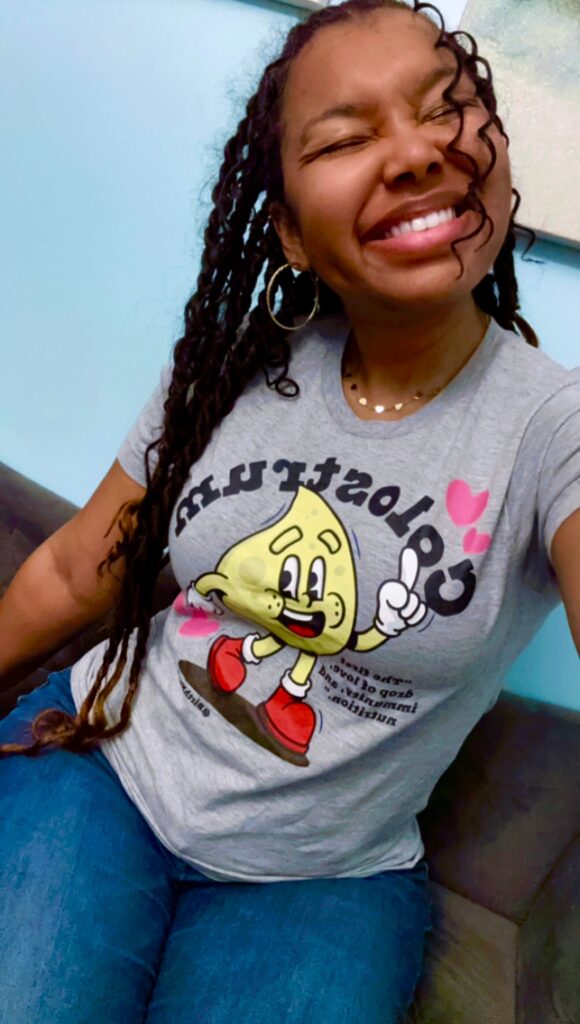I had the absolute honor of sitting down with Shenell, a dedicated birth worker and lactation advocate, to talk about her journey, her passion for supporting families, and the deep impact of community in this work.

Shenell and I first crossed paths at a breastfeeding conference, and I have to admit—I was drawn to her energy and her style. I even snapped a picture of her because I thought, “Now this is someone who carries their advocacy with confidence and grace.” From that moment, I knew I wanted to have a deeper conversation about who she is, how she shows up in this work, and what continues to fuel her passion.
Shenell story, like so many of ours, started with her own experiences. As a mother of two boys, she faced struggles during her breastfeeding journey—challenges that were compounded by racism, microaggressions, and a lack of real support. She didn’t have the community she needed, and that became her motivation to create that space for others. She shared how, even after becoming a certified lactation consultant, she struggled with feeding her second baby, reminding her that knowledge alone isn’t always enough—support, care, and community are just as essential.
One of the most powerful moments in our conversation was when Shenell talked about her sons. Her oldest is fascinated by birth work and even asked if he could become a lactation consultant one day. Hearing that gave me chills—because this is exactly why we do what we do. It’s not just about changing things for the people we work with today; it’s about shifting entire generations, creating spaces where birth justice and reproductive justice are the norm, not the exception.
We talked about how to normalize breastfeeding, especially in Black communities, and Shenell was clear: it starts with unapologetically having these conversations. Representation matters. Seeing breastfeeding, talking about it openly, and ensuring that people feel empowered to make choices that work for them—all of that plays a role in shifting cultural norms.

Shenell and I both identify as introverts, and we reflected on how that impacts the way we engage with this work. There’s this misconception that you have to be loud to make an impact, but Shenell embodies the power of quiet strength. She’s intentional, she listens, and she moves with purpose—which is exactly what makes her such a force in birth work.
Shenell spoke about the people who have supported her, her “breasties” who help her stay grounded in this work. But one thing that stood out was her struggle with asking for help—something so many of us can relate to. So, I flipped the question: if she saw someone she admired doing this work, what would she do for them? And without hesitation, she listed ways she would show up—offering mentorship, sharing resources, and amplifying their voice. That’s the energy we need in birth work.
This conversation was powerful. It reminded me why I do this work, why I connect with the people I do, and why we have to keep having these discussions. Shenell is someone who embodies what it means to lead with heart, and I’m so grateful we got to sit down and have this moment together.
